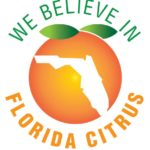With so much focus being placed on COVID-19 and its trajectory, it is easy to lose sight of all the other things happening in the world, even those closest to your own life and business. Celebrating the holidays gave me a chance to reflect on that and made me realize there’s a lot happening in Florida agriculture, and much of it is good. Let’s focus on the good.
Science and technology keep marching forward. That is most evident these days in the remarkable speed at which medical researchers have developed multiple vaccines to fight the COVID-19 pandemic. Meanwhile, Florida citrus growers have been fighting a pandemic of their own — citrus greening.
It has plagued citrus since 2005, reducing production by more than 70%. But science has been working on the problem, and I sense more confidence that breakthroughs are closer. One area that has been getting much attention lately and will be a buzzword in 2021 is peptides. It is an emerging frontier of new materials that could fight all sorts of crop ailments, and potentially greening.
What is a peptide? It is a small chain of amino acids. For context, proteins are longer chains of amino acids. Peptides can be used to enhance functions or can be used to kill harmful ones. Scientists are beginning to understand how peptides work and, more importantly, how they can be used for the good in fighting diseases like greening. It is the cause for a lot of excitement and for good reason.
Rick Dantzler, COO of the Citrus Research and Development Foundation (CRDF), has said he is convinced that peptides will be a part of the future to help Florida citrus growers. And it is a technology that is moving beyond the lab. A number of commercial peptide applications to fight greening have already been announced.
A geneticist from the University of California, Riverside has developed a peptide that kills the greening bacteria and helps trees resist the disease. The peptide was derived from the finger lime. An agreement to commercialize the compound has been signed with Invaio Sciences.
St. Louis-based Elemental Enzymes has developed a peptide product called Vismax. The product boosts trees’ natural immune response to greening. The product would require only one application per season and can be applied as a spray. That’s a plus because growers can use existing equipment.
Field trials have been promising, and the company hopes to obtain regulatory clearance and begin sales by 2022.
CRDF, along with its funding partners — the California Citrus Research Board, PepsiCo, Inc., and The Coca-Cola Company — recently announced that it was successful in receiving a National Institute of Food and Agriculture (NIFA) grant to continue the Bayer CropScience project that began in 2017. The grant was in the amount of $10,071,000 for two years, with the potential for a third funding year at $4,900,000 with satisfactory progress of the project.
This project is testing about 500 anti-microbial compounds per quarter. The search is on for a compound that will kill greening and/or enhance defense mechanisms against the disease. With that many materials being tested, it becomes a numbers game with hopes that there are one or more that will work.
It sure would be nice if we solved two pandemics in 2021 — one in humans and the other in citrus.









